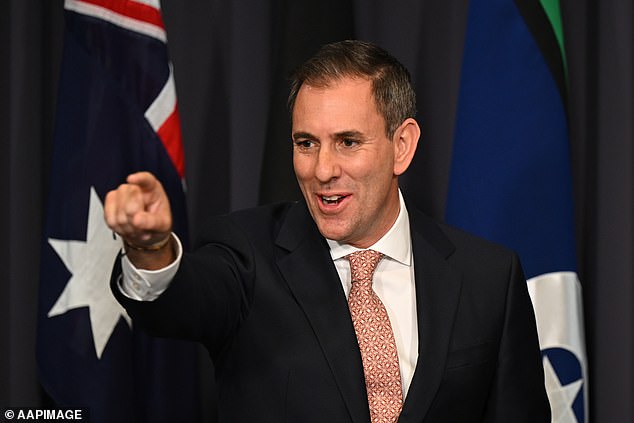How Albo & Co. Are Evading the Mega Tax—and Overlooking Its Clear Flaws
- A new tax will be applied to paper profits in superannuation accounts.
- Has to begin making payments once the balance hits $3 million.
- MPs who have served for a long time won't have to make payments until they retire.
The Prime Minister has exempted both himself and other recipients of substantial parliamentary pensions from the fresh superannuation tax that applies to all others.
The fresh tax on uncrystallized super profits demands immediate payment from others once they hit the taxable limit. But not for our Albo; he has the option to postpone his payments until post-retirement.
This is typical where politicians establish one set of rules for their own conduct and entirely different ones for the rest of us.
According to the upcoming legislation, individuals with a superannuation balance exceeding $3 million will be required to pay taxes on theoretical gains annually. This might necessitate selling portions of their investments simply to cover the resulting tax obligations.
The Prime Minister and other beneficiaries of the traditional parliamentary superannuation scheme are exempt.
They only need to make this payment once they actually retire and start receiving the funds, at which point it will be available to them, albeit with a lower amount. inflation a rate equivalent to that of government bonds.
The opposing side has charged the Labor Party with having double standards, an accusation that holds true.
Nevertheless, several Liberal MPs remain at Parliament who also meet the criteria for the previous pension scheme and stand to gain similarly to how Albanese would.

This encompasses new Liberal leader Sussan Ley, who joined Parliament in 2001, two years prior to when the previous parliamentary pension scheme was phased out for newcomers under John Howard’s administration.
A representative for Treasurer Jim Chalmers attempted to deflect criticism with convoluted explanations aimed at justifying the favorable taxation policies for the Prime Minister and other political elites. However, it’s clear that Chalmers has embedded a specific clause within the revised legislation designed to benefit those close to him, including his superior.
When Parliament reconvenes at the end of July, the new tax will be presented for consideration.
Certainly, the choice not to require members receiving parliamentary pensions to pay theoretical profit taxes upfront is wise since they cannot liquidate portions of their pension to settle such tax debts as ordinary retirees might do with their superannuation.
Members of Parliament like Albo might have to offload additional possessions to settle the debts, which poses quite a challenge.
However, that’s exactly why the fresh tax is poor policy, and experts have marked it as 'defective'.
Nevertheless, Labor continues to push forward with it regardless of the worries expressed from various sides over the past few weeks.
Even the ex-Treasury boss Ken Henry and the past RBA governor Philip Lowe have voiced their worries.

While Labor likes to proclaim the new tax will only apply to a small number of tax payers with super accounts that have more than $3m in them, that won't remain true for long, because the rate at which it applies isn’t indexed, and over time more and more Australians will be forced to pay it.
AMP predicts that by the time Generation Z reaches retirement, one in every two individuals may have to pay taxes if the $3 million threshold isn't adjusted. The Labor party has stated they do not plan to adjust this threshold.
The Treasury predicts it will generate $40 billion from the tax over the next ten years, with a significant portion of this amount expected later in the period as the tax affects many more individuals.
Critiques of the new tax extend further than just the absence of indexing.
This description also suggests that it disproportionately affects women since they often contribute less to their superannuation during periods when they're outside the workforce raising children. Additionally, considering that women typically outlive men, this makes them more dependent on those savings.
When a man passes away first, his female partner typically receives the transfer of his superannuation into her account. If this pushes her total beyond $3 million, she'll face a new 30% tax on the amount she has inherited.
Hence, some tax professionals have referred to it as a 'widow tax.'

Farmers and individuals using their superannuation to purchase investment properties will face significant challenges as well, since these tangible assets cannot be divided and sold to cover taxes. Should the value decrease in later years, tough luck—the tax liability remains unchanged.
As demands for reforms to the new tax continue to rise, Labour has not yet shown any signs of revisiting its significant shortcomings.
Starting from 1 July, the new Senate comes into play, with Labor receiving backing from the Greens—who will hold the balance of power independently—to push through this legislative alteration.
Do not anticipate any efforts towards indexing from them. In fact, the Greens aim for the tax to apply at $2 million and might manage to negotiate this point, despite Labor firmly standing behind the $3 million limit they campaigned with.
Read more
Post a Comment for "How Albo & Co. Are Evading the Mega Tax—and Overlooking Its Clear Flaws"